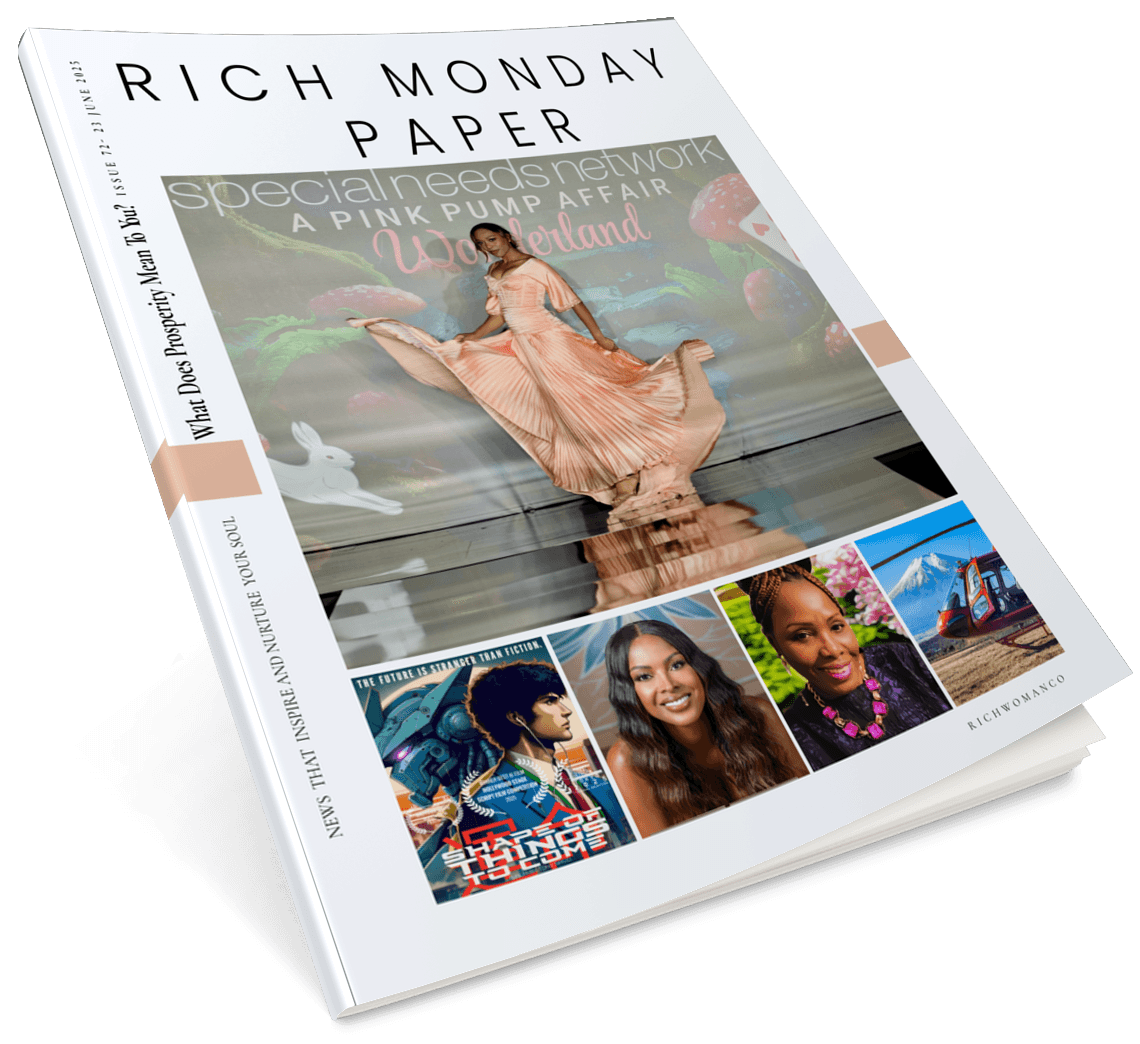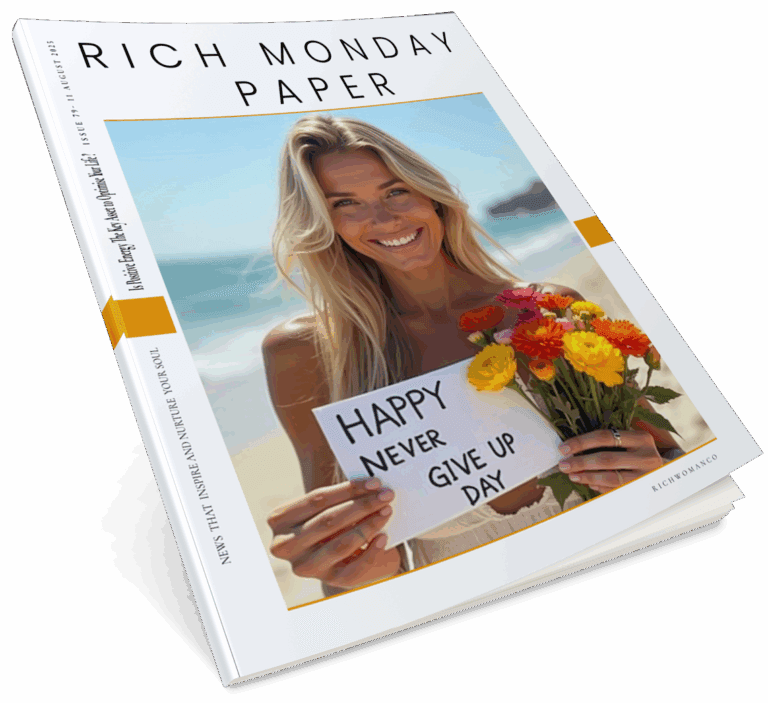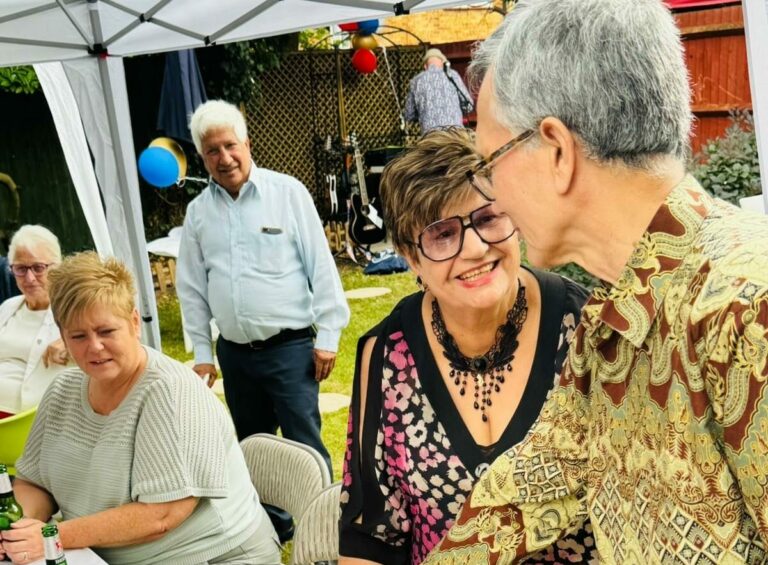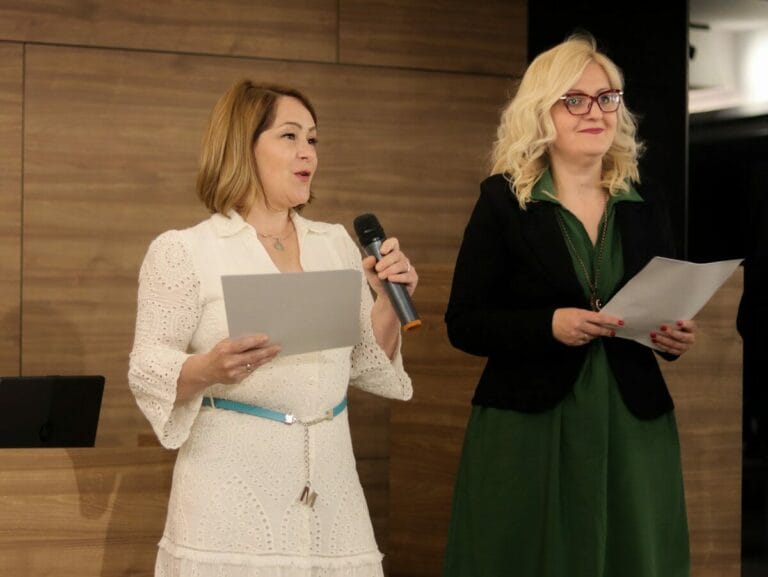Pause for a moment and ask yourself this:
What does prosperity truly mean to you? Is it a number in your bank account? A postcode? A passport? Or could it be something more—a feeling, a freedom, a foundation beneath your feet that says, you belong here, and you are safe to grow.
From the stories we share every day, we understand that prosperity isn’t just a synonym for wealth but a the opportunity to live with dignity and purpose. Prosperity is the child who doesn’t have to go to bed hungry. The movie producer who creates without fear of censorship. The mother who walks safely through her own neighbourhood. The entrepreneur who builds not just for profit but for people.
True prosperity is not exclusive. It is not gated or guarded. It grows when shared. It multiplies when rooted in justice. It flourishes in societies where every individual has the freedom and the means to thrive, not just survive.
As we bring you Edition 72 of Rich Monday Paper, we invite you to reimagine prosperity as something richer than riches. Not the end goal—but the soil in which hope, innovation, and humanity can grow.
Inside this issue, we explore prosperity through bold headlines and fresh perspectives:
Better Lifestyle Choices
Prosperity begins in the everyday. We explore how conscious living—through rest, ritual, nourishment, and movement—can create lives of true richness. Meet those choosing depth over distraction, and health over hustle. I started thinking about prosperity in three areas – health, wealth and love – but not in the neat, Facebook-friendly way I’d always imagined. This was messier, full of contradictions and uncomfortable truths.
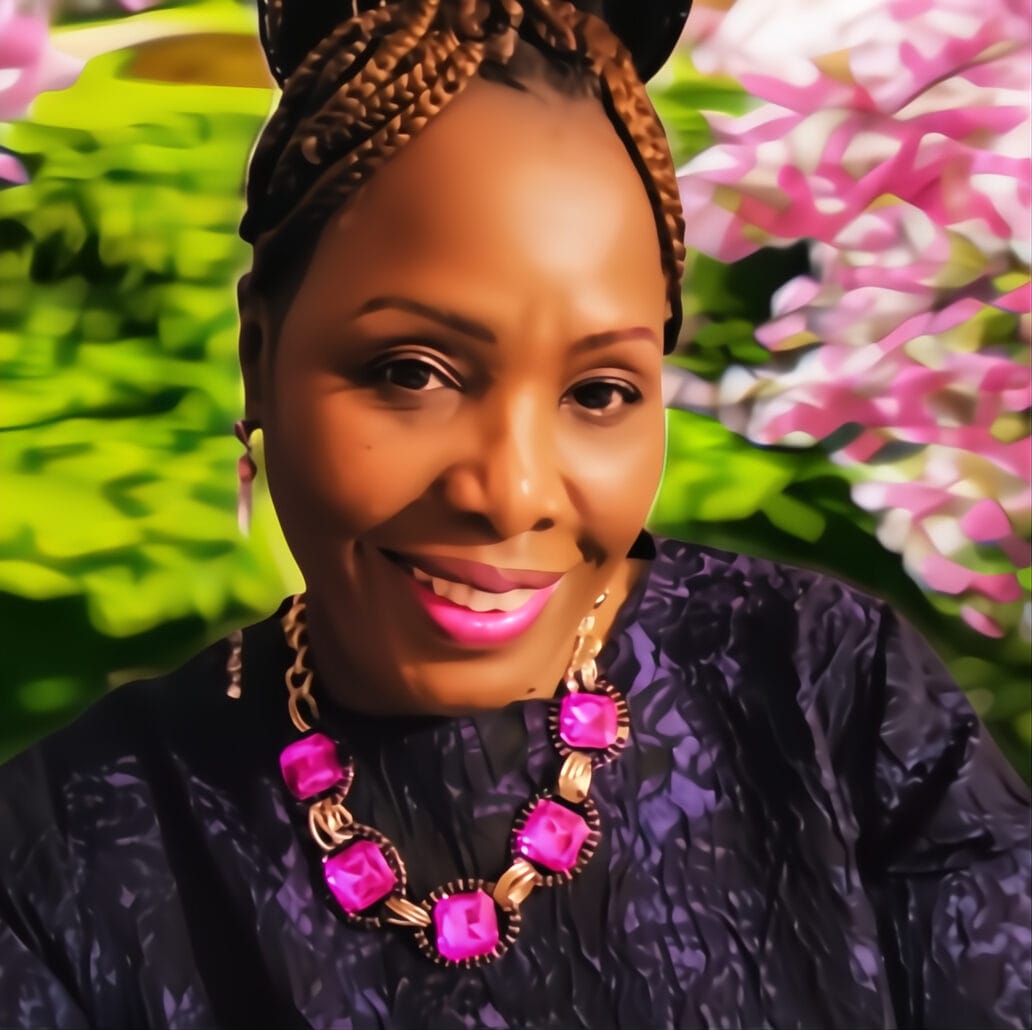
I found Barbara’s solution a Reality Check Worth Taking: Work-Life Balance for Real Life with Barbara Bamba: A 5 Minutes No-Nonsense Audit for Women Founders Who Juggle It All
She is inviting us to discover an AI-powered Work-Life Balance Audit for women entrepreneurs – practical, evidence-backed steps to prevent burnout and enhance wellbeing.
EU Focus
From progressive policy shifts to grassroots movements, we examine how Europe is wrestling with—and redefining—shared prosperity. In a continent shaped by diversity, what does it mean to create a future that works for all?
The Reading and the Writing Room
Words are wealth. Our editors select the authors shaping tomorrow’s dialogue—from fierce economic thinkers to lyrical voices reclaiming power, equity, and identity through the page. Prosperity also means consuming different content – books and podcasts that focus on authentic self-awareness rather than just productivity hacks. I realised I needed to stop trying to look the part of success and start focusing on what success actually felt like for me.
Film
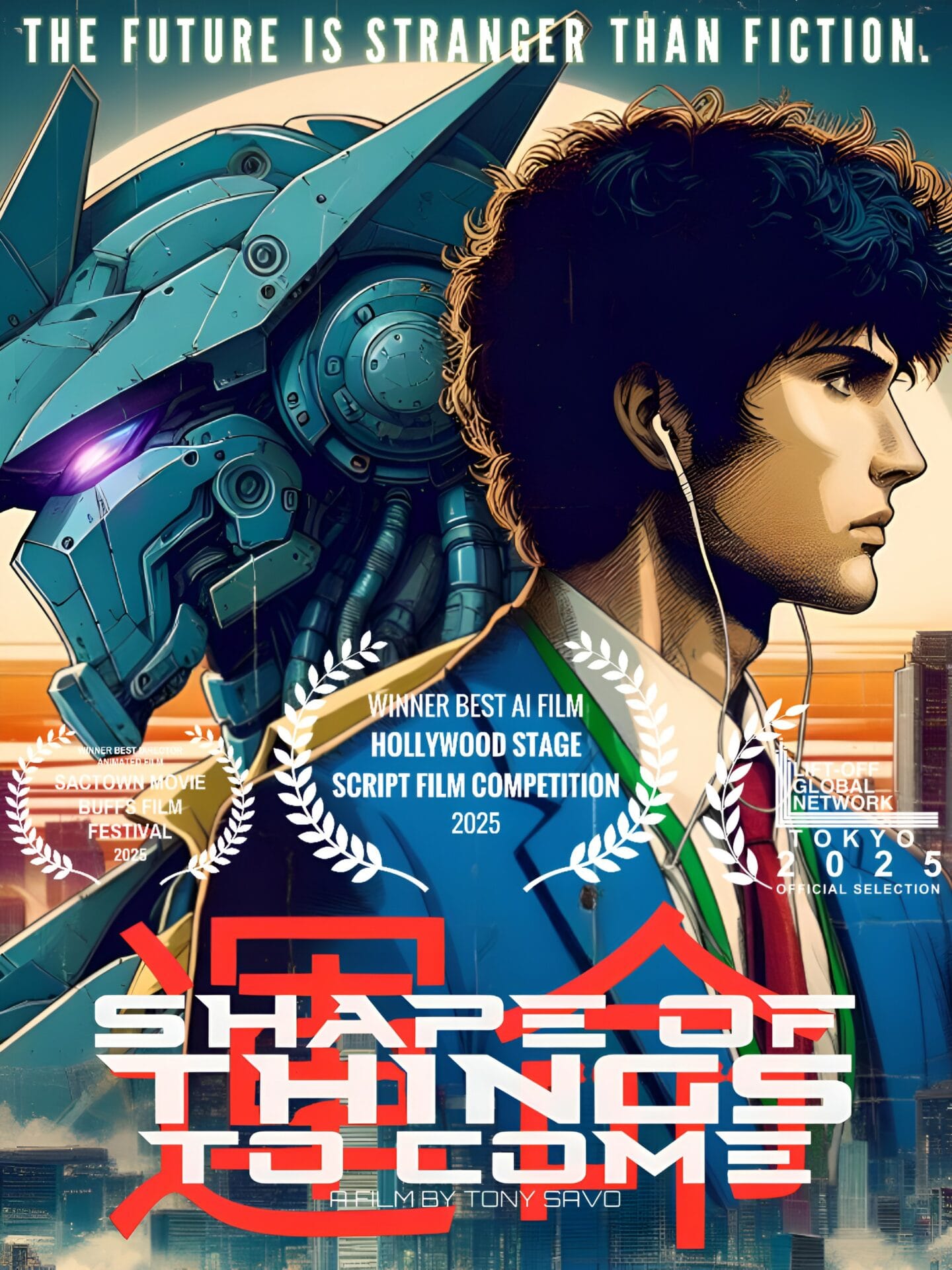
Can One Indie, AI-Made Film Really Shake Hollywood? What ‘Shape of Things to Come’ Means for Investors. Tony Savo’s AI film triumph signals a shift in filmmaking as accessible tools enable new IP, attract investors and reshape streaming industry trendsCinema is often a mirror of longing. This month, we highlight films that challenge traditional narratives of success—and instead spotlight the quiet, profound dignity of ordinary lives lived with courage and care.
Mindful Travel

Beyond the bucket list lies true discovery. We take you to places where prosperity is measured in cultural wisdom, shared meals, and human warmth—where travel becomes a bridge, not a boundary.
Sustainable Fashion
Style is no longer just seasonal—it’s ethical, intentional and visionary. Discover designers and movements using fabric as language, telling stories of heritage, sustainability, and self-expression. A Pink Pump Affair unites 500 women for charity, blending couture, philanthropy and support for families with autism and crisis relief in Los Angeles.
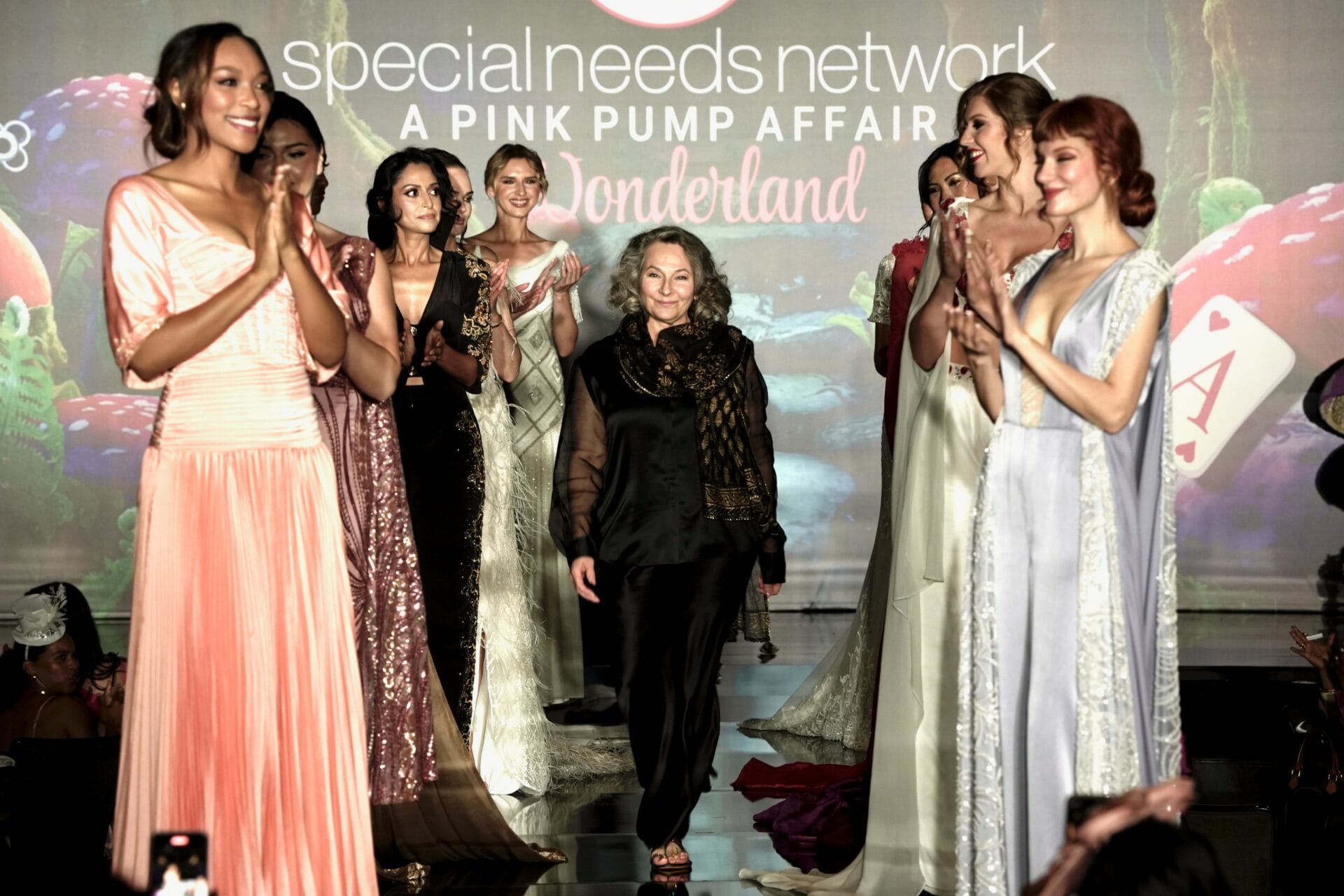
The former FBI special agent, Designer Tess Mann who spent 20 years investigating criminal cases, now creates couture pieces that serve as armour for modern women. Her journey from federal law enforcement to fashion design isn’t just unconventional—it’s a testament to how personal purpose can find expression in unexpected places.
In a time when prosperity is too often portrayed as a privilege for the few, Rich Monday Paper stands for something different: Re-imagining our world as a place where prosperity is possible for everyone. Where policies protect. Where freedom is a given, not a gamble. Where we remember that our collective future is only as strong as our social contract. So, as you turn these pages, ask yourself :
What does prosperity mean to you?
And more importantly—how will you help create it? The truth is, I’m still figuring it out. Defining prosperity for yourself isn’t a one-time decision but an ongoing conversation with yourself about what actually matters. Some days I feel confident in my choices; other days I wonder if feeling good and happy every day is unrealistic.
What I do know is that the alternative – living by someone else’s definition of success – felt like slow suffocation. The challenge that started this whole process still echoes: ‘Take the plunge. It’s time to figure it out for yourself.’ It’s not an invitation to have all the answers immediately. It’s an invitation to start asking your own questions.
I’ve been learning to appreciate what I call the abundance of living authentically – even when it means disappointing people who had different expectations for my life. Some days prosperity feels like having enough courage to disappoint others in favour of not disappointing myself.
Your Story Steward
PS:
On a more personal note, as I travel most of the time, there is something profoundly human about festivals, concerts and flower shows in the cities where access is free and people are drawn not by status or ticket price but a shared sense of belonging. Across the world, some countries continue to honour the spirit of community with festivals and events that are truly for the people. Others, perhaps unintentionally, have turned celebration into a luxury, one that many can no longer afford.
In Spain, the Festival of the Patios in Córdoba and the Flower Carpet in Girona are exquisite acts of generosity. Entire streets are transformed into rivers of colour—floral artistry woven into public spaces, offered freely to locals and tourists alike. There is no ticket, no velvet rope. Just beauty, commitment to beauty and local pride.
Compare this to the Chelsea Flower Show in London—equally breathtaking in its craftsmanship and design, yet carrying a price tag that makes it inaccessible to most people, locals and visitors alike. What began as a celebration of horticulture has, for some strange reason, become a symbol of exclusivity, more often attended by the elite than by the everyday gardener who simply loves flowers.
Across Europe, we see both sides of this spectrum. In Germany, summer nights bring open-air classical concerts in public squares, freely attended by families and students. In Italy, religious and seasonal festivals still fill village streets with song, dance, and shared meals—no wristbands needed. But elsewhere, once-local festivals are being monetized, commercialized, and distanced from their roots.
In America, the story is equally mixed. While high-profile music festivals like Coachella or Burning Man have become cultural beacons, they are also financial barriers. And yet, cities like New Orleans continue to offer music and magic in the streets with Mardi Gras parades and jazz performances that ask nothing but your presence.
Across Asia, the contrast is often starker. In Vietnam there are eight thousands festivals a year. In Thailand, Loy Krathong sees rivers lit with floating lanterns, a quiet, open ritual shared across classes. In India, Diwali spills joy into every alley, every home, regardless of wealth. In Japan, cherry blossom festivals invite everyone to sit beneath the petals in peace.
What we’re witnessing is a quiet cultural divide—not between East and West, or North and South—but between celebration as a communal right and celebration as a commodity.
A truly prosperous society remembers that joy is a public good. That art, nature, music, and heritage are most powerful when they are shared without gatekeeping. When streets become galleries. When silence is broken by laughter. When families gather not to consume—but to connect.
As we imagine the future of festivals, the question we must ask is not How much does it cost? but Who is invited? Let’s champion the cities, the villages and the nations that continue to open their arms, where celebration is still a birthright and the most beautiful things are still free.


